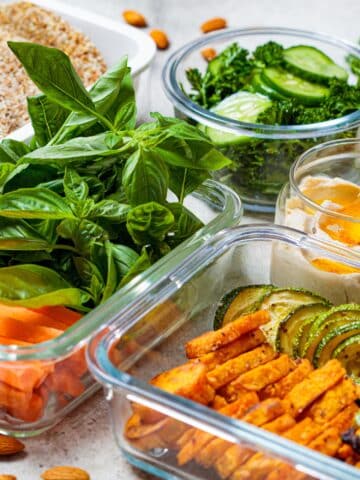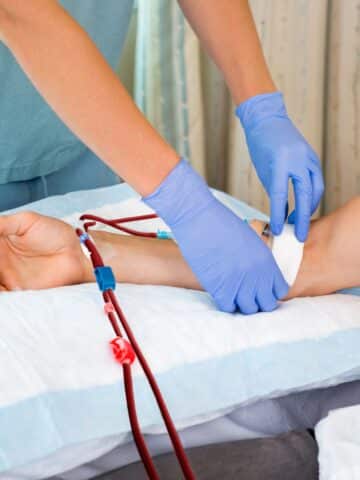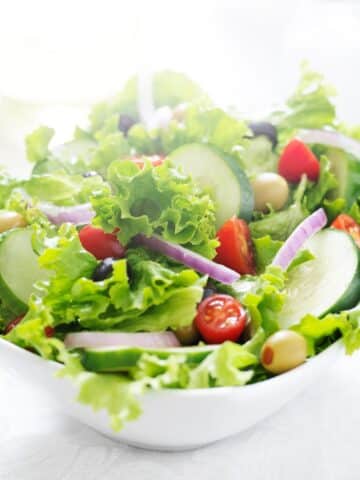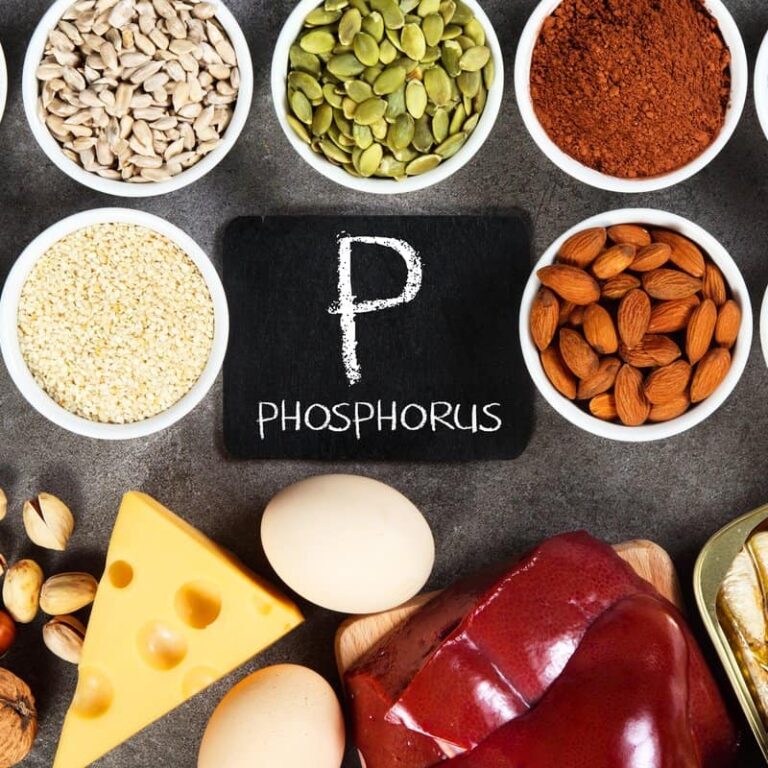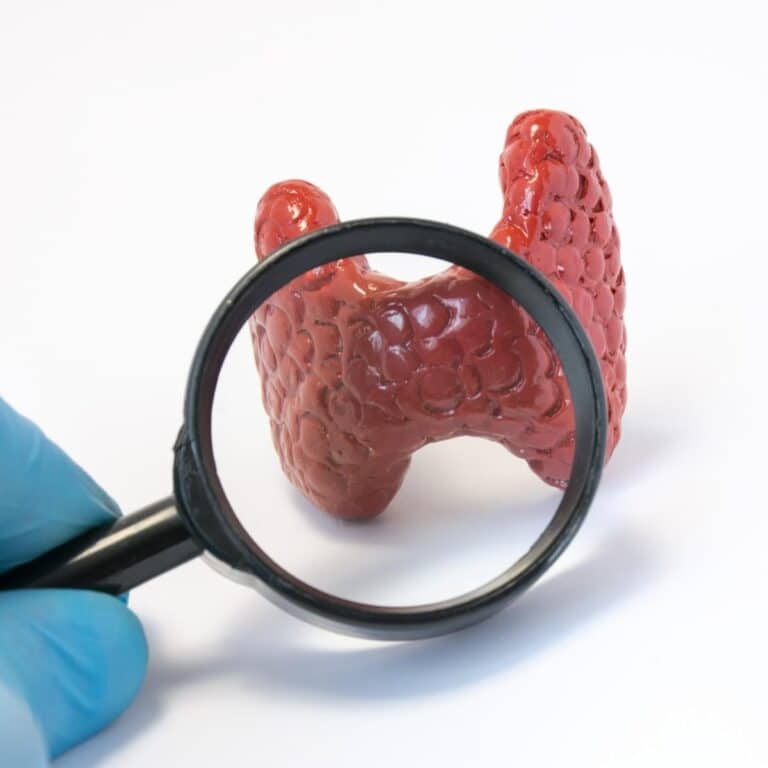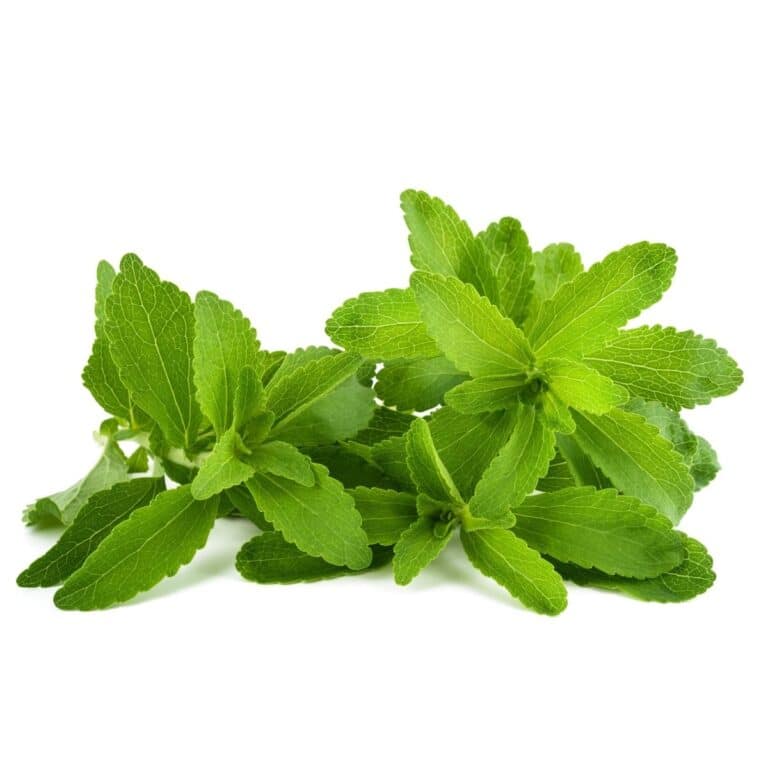Dialysis Diet Guidelines
Dialysis is a life-saving treatment for those with kidney failure. However, maintaining a healthy diet while on dialysis can be difficult and requires careful planning.
Knowing the right dietary guidelines to follow makes it easier to stay healthy during dialysis treatment sessions and improve your overall well-being.
In this article, we'll discuss the important considerations you should keep in mind when developing your dialysis diet plan. Knowing dialysis diet restrictions is vital to making this a successful diet.
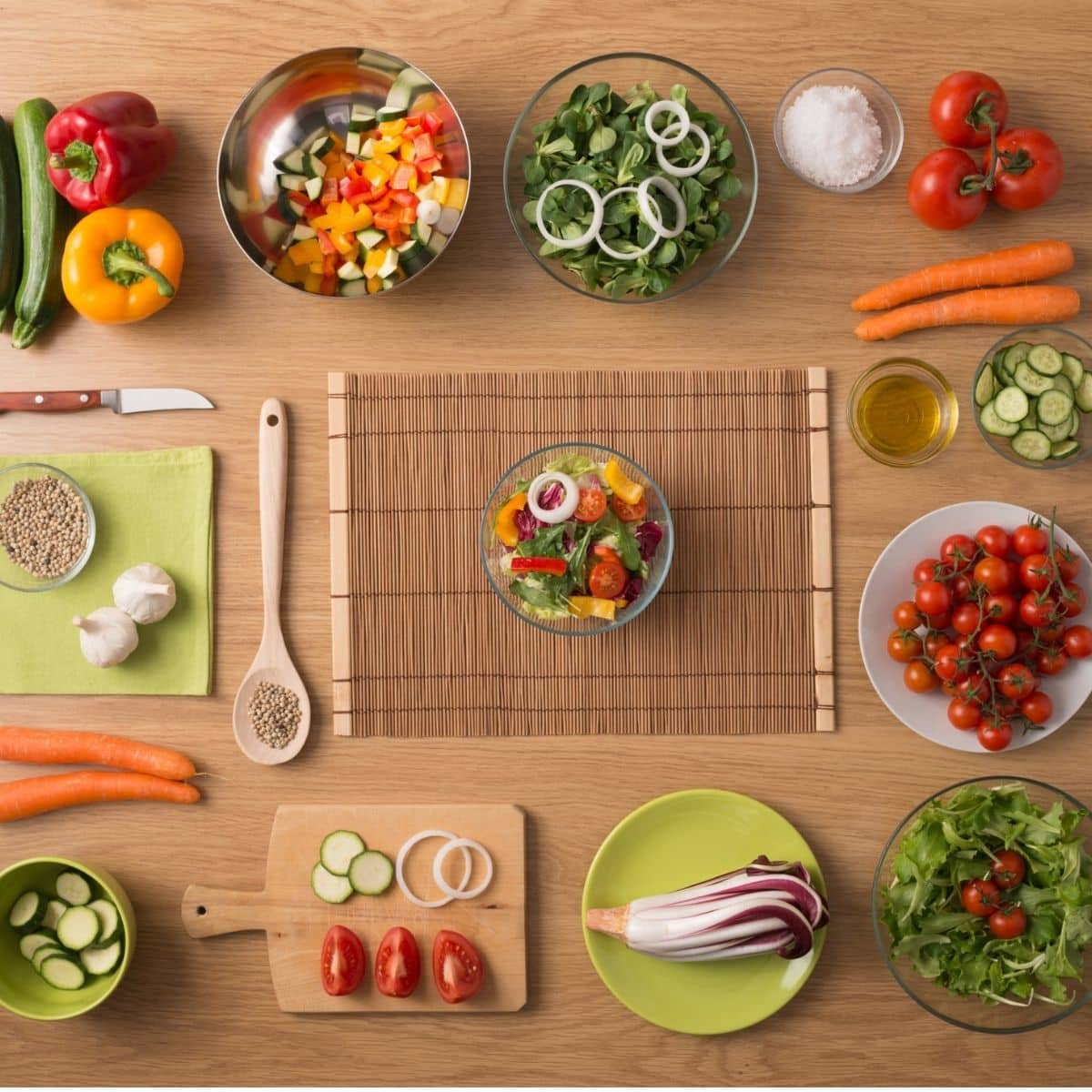
What is a kidney failure diet? Living with kidney failure presents many challenges, but having access to quality medical care and following proper dietary recommendations can help make living with renal disease much more manageable.
By understanding how nutrition impacts your body's physiology, you can develop an eating strategy that works for your individual condition.
Jump to:
- What Is A Dialysis Diet?
- Choosing The Right Foods
- Monitoring Your Sodium, Potassium, And Phosphorus Intake
- Eating A Balanced Diet
- Eating Enough Protein
- Adding Supplements To Your Diet
- Eating Out On A Dialysis Diet
- Managing Fluid Intake
- FAQs about Dialysis Diets
- The Right Dialysis Diet Can Help Maximize Your Quality of Life!
What Is A Dialysis Diet?
Eating with chronic kidney disease (CKD) can be a daunting task, but hemodialysis diets take it to an entirely new level. There are many challenges that go along with the necessary diet restrictions.
But with the right knowledge and mindset, hemodialysis diet guidelines don't have to be overwhelming or intimidating.
Choosing a diet for dialysis is a very important part of the overall medical treatment to help your overworked, or failing kidneys. Dialysis machines do the function of failing kidneys, by removing waste from the blood.
When you are on dialysis, it is very important to watch what you eat, so that the process works correctly, and also so that your body obtains the foods and nutrients that it needs to function.
What is a diet for hemodialysis patients? Basically, a hemodialysis diet outlines the foods and nutrients that you should limit in order to prevent complications swelling, fluid retention, abnormal heart rhythms, and bone disease, which may result from accumulation of substances that your failing kidneys cannot eliminate.
When following a hemodialysis diet, it's also important to keep certain things in mind such as fat and fiber content of foods, lifestyle changes that need to be made, tracking progress regularly, and weight management.
All these factors play a key role in ensuring your health remains well-balanced throughout the process.
Making adjustments isn’t easy; however, having the proper support system in place makes all the difference. From family members and friends to health professionals and nutritionists – each person has something special to offer when managing a hemodialysis diet plan.
For More Recipes and Ideas --->> Get Your Free Meals and Recipes That Are Perfect for Pre-Dialysis Diets, Pre-Dialysis with Diabetes, or Dialysis Diets.
Choosing The Right Foods
It's important to choose the right foods for a healthy kidney diet, especially if you're on dialysis. Protein is an essential macronutrient that needs to be included in your diet, so it's vital to know what high-protein foods to include.
Carbohydrates should be consumed in moderation, so it's a good idea to look into low-carbohydrate foods as well as healthy carb sources.
Lastly, when it comes to fats, make sure you know which ones to include and which ones to avoid.
Protein
When it comes to dialysis diet guidelines, protein is a key part of ensuring good health. Tracking your dietary intake, portion sizes, and reading labels are all important steps in making sure you get enough while avoiding additives or unnecessary ingredients.
A simple way to make sure this happens is by opting for lean proteins like fish, poultry, and beans. Be sure to check the ingredients list for added sugar or sodium when picking out any food product.
Hard boiled eggs, especially the egg whites as well as yogurt and tofu are also good sources of healthy protein that you may want to include in your dialysis diet meal plan.
Carbohydrates
When it comes to carbs, avoiding sugar and limiting simple carbs is key. While some simple carbs can be healthy in moderation, foods like white bread, white pasta, and processed snacks should generally be avoided as they are high in both calories and added sugars.
Complex carbs such as whole grains and legumes offer more nutritional benefits than their simpler counterparts; these should form the basis of your carbohydrate consumption while following a dialysis diet.
Finally, consider keeping track of your carb intake through something called 'carbohydrate counting'. This involves tracking how many grams of carbs are consumed at each meal or snack so that you don't overdo it–it also helps when planning meals ahead!
Fats
When it comes to choosing fats while following a healthy diet plan, there are several things to consider - such as fat sources, intake, and even substitutes.
Knowing the best kind of fat for your health is important; some healthier options include plant-based oils like olive oil or canola oil, avocado, nuts and seeds.
However, all fats should be consumed in moderation, so make sure you're aware of your individual requirements when it comes to fat intake.
If you want an alternative to traditional forms of fat, there are plenty of low calorie/fat substitutes available too – from egg whites and Greek yogurt to protein powder and coconut milk!
With all these options at hand, you're sure to find something that fits into your dietary needs.
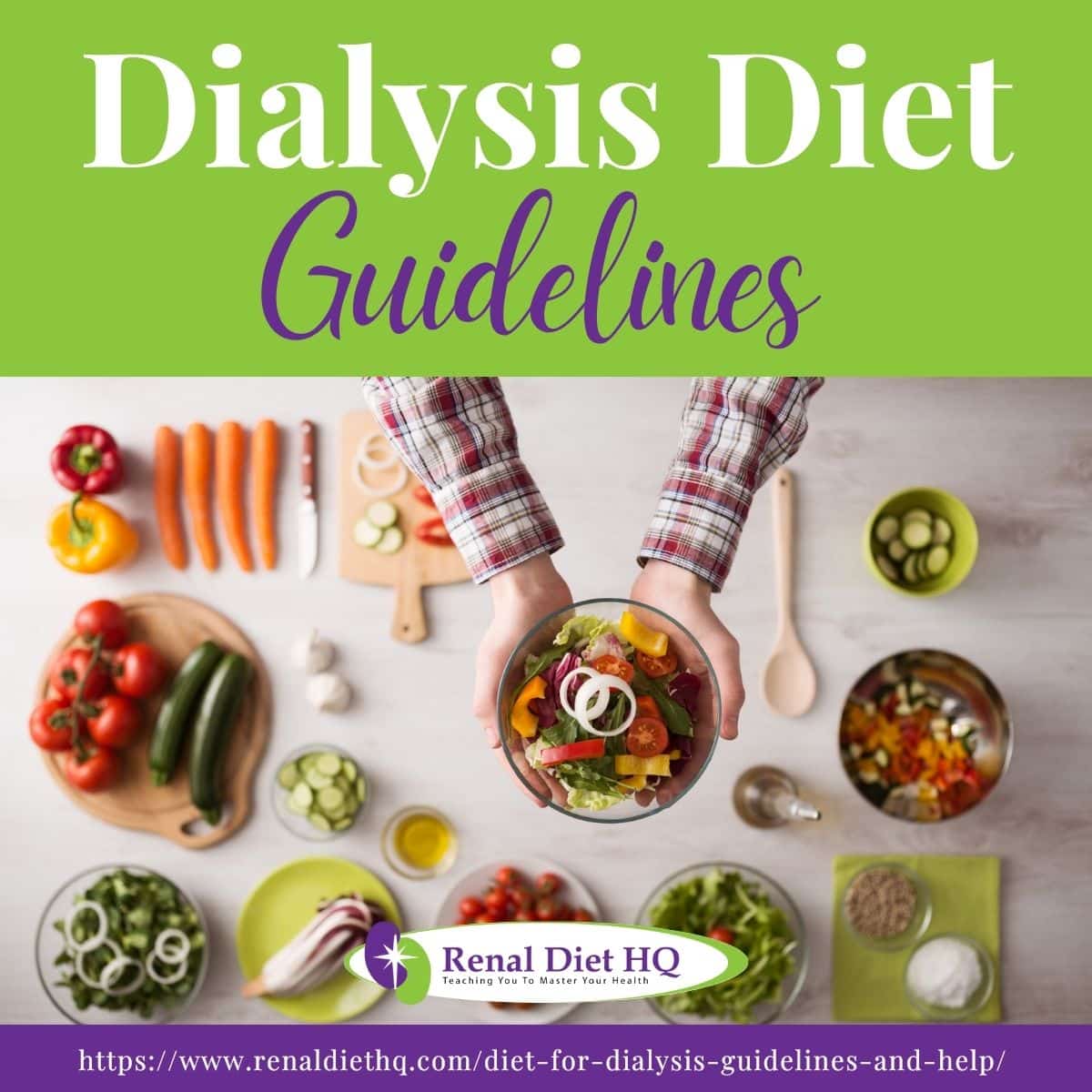
Monitoring Your Sodium, Potassium, And Phosphorus Intake
Sodium intake should be monitored daily, as too much can be dangerous. Potassium and phosphorus intake should also be tracked, as foods high in these minerals can be hazardous for those with kidney problems.
To maintain a balanced diet, it is important to be aware of fluid restrictions, sodium level limits, and avoiding foods high in potassium and phosphorus.
To help you track your dietary intake, it is essential to check food labels and monitor your lab results as guided by your physician. Nutrition education and proper food preparation can also help ensure that you meet your dietary needs.
Sodium
It's important to watch your sodium intake when following a dialysis diet. Too much salt can cause serious health problems and may even lead to hospitalization. Salt causes excess fluid retention which can lead to swelling, high blood pressure, and shortness of breath.
For patients on dialysis, it is best to keep sodium intake at less than 2000 milligrams per day to avoid any of these complications.
Reducing the amount of salt you consume is key, but it doesn't have to mean sacrificing flavor! Salt substitutes and flavor enhancers like lemon juice or herbs are great ways to add taste without upping your sodium levels.
Reading food labels for serving size and ingredients will also help in monitoring how much sodium you're consuming daily - pay special attention to “hidden” sources such as canned soups, processed meats, and condiments.
Potassium
Need a low potassium diet for kidney disease? Patients with end-stage kidney disease need to be cautious about their potassium intake. High-potassium foods such as bananas, avocados, and potatoes should be avoided. It's important to be aware of other high-potassium foods to limit and know low-potassium alternatives.
Portion control, carbohydrate counting, food labeling, and a balanced diet are crucial for managing potassium intake in maintenance dialysis patients.
The recommended daily limit for dietary potassium intake is generally less than 3 grams per day.
Paying attention to potassium sources like vegetables, dairy products, grains, and nuts while controlling portion sizes helps maintain a healthy balance. Consultation with a renal dietitian can assist in creating a suitable meal plan.
High-potassium foods to limit include fruits like bananas and oranges, vegetables such as potatoes and spinach, dairy products like yogurt and cheese, grains like quinoa and oats, nuts, legumes, and meats.
Low-potassium alternatives include apples, pears, certain leafy greens, white rice or pasta, mushrooms, squash, unsalted nuts, and seeds. Monitoring portion sizes and reading food labels are essential for accurate tracking. Being mindful of the kidney diet promotes better health outcomes.
Phosphorus
People on dialysis need to be cautious about their phosphorus intake. It is crucial to understand the sources of phosphorus and how much is too much.
The main sources of dietary phosphorus are proteins, including dairy products, legumes, nuts, eggs, fish, and poultry. Plant-based proteins also contain phosphorus but in lower levels.
Dark unprocessed grains like oats, wheat germ, and bran also contribute to phosphorus intake. Processed foods may contain phosphorus additives, so it is important to check labels before consuming them. Low phosphorus foods are plentiful, which is great because you have plenty to choose from!
Daily phosphorus limits vary based on individual needs, fluid balance, hydration levels, and portion control. Generally, for those with kidney disease, the limit should be 800-1000 mg per day but it may be adjusted for those receiving dialysis.
Consulting a health care provider will offer personalized advice. By monitoring phosphorus sources and maintaining a balanced intake, optimal health can be achieved.
Eating A Balanced Diet
I'm sure we all know that eating a balanced diet is important for our health, but it can be difficult to know what foods are healthy and how often we should be eating.
Let's talk about what healthy food choices we should be making and how regularly we should be eating. We should also consider any special dietary needs, such as those of dialysis patients, to ensure they are getting the nutrition they need.
Choosing Healthy Foods
Eating a balanced diet while on dialysis is essential for maintaining overall health. When it comes to choosing healthy foods, limiting sugar and avoiding processed foods are key.
Increasing fiber in the diet can help lower cholesterol levels, while adding vitamins and minerals through organic sources like fruits and vegetables helps boost immunity.
Eating organically also ensures that you get more of the nutrients your body needs without any added chemicals or preservatives.
Enjoying an array of fresh whole foods is one way to ensure a nutritious and delicious meal plan (7 day renal diet meal plan) while on dialysis — something everyone deserves!
Eating Regularly
Staying on top of your nutrient restrictions is important when following a balanced diet and on dialysis, but eating regularly is just as essential.
Planning meals ahead of time can help make sure that you don't miss any key nutrients or forget to eat altogether. Portion control also plays an important role in maintaining healthy eating habits while on dialysis.
Snacking throughout the day with fresh fruits or unsalted nuts (are peanuts bad for kidneys?) helps keep energy levels up and prevents overeating during meal times.
Reading food labels and being mindful of food safety are also incredibly important for managing dietary needs; check expiration dates before consuming foods and be aware of potential allergens or ingredients that could cause complications.
Eating regular meals with controlled portions will ensure that your body gets all the vitamins it needs without going overboard, especially with all the dialysis diet restrictions!
Eating Enough Protein
We all need to make sure we're getting enough protein in our diets, so let's talk about some sources of protein, the benefits of protein, and any special consideration for dialysis patients that we should be aware of.
Animal products like eggs, milk, and meat are great sources of protein, but there are also plenty of vegetarian options like nuts, beans, and tofu. Protein helps us build and repair muscle, and it boosts our metabolism and immune system.
How do you avoid end stage renal disease? If you have end stage renal disease and are on dialysis, your doctor may recommend adding more protein to your diet to counter the side effects of protein loss during dialysis treatments.
Sources Of Protein
It's essential for anyone on dialysis to get enough protein in their diet, but unfortunately it can be a challenge. Eating the right food choices and properly portioning them is key for keeping your kidney health in check. Fortunately there are many delicious, kidney-friendly options that provide plenty of protein!
Lean meats such as chicken, turkey, fish, and seafood are all great sources of high-quality protein. Low-sodium deli meat can also help you meet your daily needs without going over your salt limit.
Dairy products like low fat milk, cheese, yogurt, and cottage cheese offer another way to add more protein into your meals – just remember that these foods tend to have high levels of phosphorus so they should only be eaten in moderation.
Beans, legumes, nuts and nut butters (best peanut butter for renal diet) are also considered as high-quality protein sources; however it’s important to watch out for added sodium when choosing packaged varieties.
Balanced meals with adequate amounts of lean proteins along with fresh fruits and vegetables will help ensure you're getting the nutrients needed while still following dialysis guidelines.
Benefits Of Protein
Eating enough protein is essential for anyone on dialysis. There are many health benefits of getting your fill of lean proteins, especially if you are on dialysis!
The process of dialysis can pull out important proteins from the blood, hence, it is essential to make sure that you make up for these lost proteins through your diet. Moreover, there is some inflammation that occurs during treatments, and protein can help support the body through these processes.
Not only does having an adequate amount of protein in your diet help to reduce inflammation and protect against certain diseases, but you're also able to get healthy sources such as lean meats, dairy products, beans, legumes, nuts and nut butters - each with their own unique nutritional profile.
Protein Needs
So now that we know the importance of eating enough protein while following dialysis guidelines, let's discuss the amount of protein that needs to be consumed.
For people with kidney disease who undergo regular dialysis, it is important to consume 1.0 to 1.2 grams of protein per kilogram of body weight each day. For best results, these proteins should come from healthy sources, such as those mentioned above.

Adding Supplements To Your Diet
Whats end stage renal disease? It is important to know the recommended supplements for dialysis patients and the benefits they offer. There is significant potential for supplements to make a difference in the health of people with end stage renal disease.
Let's discuss the types of supplements we should consider and how they can be of benefit.
Types Of Supplements
When it comes to adding supplements to your diet, there are a variety of options available. Whether you have symptoms of deficiency or signs of undernutrition, vitamin supplements can be an important part of dialysis diets.
Supplements come in all shapes and sizes; from capsules and tablets to powders and liquids. Most of them contain vitamins and minerals of many kinds. They can help fill nutritional gaps in your diet while providing extra nutrients that would normally require multiple servings of kidney friendly fruits and vegetables every day!
Benefits Of Supplements
The benefits of adding supplements to your diet are plentiful! Not only will you be providing your body with essential vitamins and minerals that may not be found in regular meals, but they can also help promote better health.
They provide essential nutrients that may not otherwise be found in regular meals, as well as additional energy for individuals feeling fatigued. It's also helpful to know what type of supplement is best for you based on the foods you eat, so if you're considering adding a supplement to your diet, check with your healthcare provider first when following a diet for renal dialysis patients.
Eating Out On A Dialysis Diet
Are you worried about dining out with kidney disease? Eating out on a kidney dialysis diet can be tricky, but it doesn't have to be. Knowing some strategies, such as researching restaurant choices can make it easier.
When it comes to planning your dine out, it's important to make sure you know what the restaurant offers and stick to your dialysis diet guidelines. When it comes to restaurant choices, try to pick a place that has nutritional information available and offers plenty of healthy options.
That way, you can make sure you're eating something that fits within your diet restrictions. Eating out doesn't have to be daunting - with some careful planning, it can be an enjoyable experience for dialysis patients.
Eating Strategies
Looking for a diabetic renal diet meal plan? Minimizing cravings is key when trying to stick to your diet. This can be managed by mindful and healthy snacking. Meal planning ahead of time is also important, so that when mealtime rolls around all you have to do is order what’s already been decided.
This can be done by researching your restaurant of choice so that you know which meals are well suited for your renal diet.
Additionally, practice portion control in restaurants as well as at home; many restaurant portions are larger than necessary so be conscious of how much food you're consuming.
Finally, aim for mindful eating: pay attention to flavors and textures while savoring each bite so that you don't overeat!
Restaurant Choices
Now that you know some eating strategies, let’s look at making safe choices when eating out.
When dining away from home, it’s important to be aware of portion sizes and food ingredients so you can make informed decisions on what will work best with your diet.
To ensure a healthy meal, ask the waiter or waitress about the dish's preparation methods and ingredient list before ordering; this way you can have an idea of how the food is cooked and if there are any extra additives like added sugar or sodium. Healthy eating with a dialysis diet plan starts with small decisions.
Additionally, go for dishes that focus on lean proteins like fish or chicken along with fresh vegetables as sides – these options are typically lower in fat and salt than other offerings on the menu.
Moreover, many restaurants offer their menus with corresponding nutrition facts online, so you can plan ahead on what to order.
Managing Fluid Intake
Now, let’s discuss how to manage fluid intake (fluid restricted diet menu), so let's start with monitoring it. Patients with kidney disease should be sure to keep track of how much liquid they're consuming each day.
Fluid intake is an important part of dialysis diet guidelines. Monitoring how much you drink can help you maintain your kidney health and ensure that you don't experience any problems with buildup of fluids.
The goal for most people on dialysis is to stay within liquid limits so their body doesn’t take in more fluids than it can handle. To do this, you'll need to monitor your eating habits and hydration patterns closely - but there are a few simple tips that can make the process easier.
It's best to keep track of all liquids consumed throughout the day - including coffees, teas, soups, juices, sodas, and alcoholic drinks. You should also check food labels for hidden sources of sodium which may have been added during processing. Sodium can cause fluid buildup, so salt intake is also key in avoiding extra fluid retention.
Your health care provider will determine how much is your daily liquid intake limit, depending on many factors such as your body weight, residual kidney function, and stage of kidney disease.
When assessing your daily fluid intake needs, try using a diary or tracking app where you can log every sip of water or beverage consumed each day. This will give you a better understanding of how much fluid has gone into your system over time, allowing you to adjust as necessary.
FAQs about Dialysis Diets
Managing dialysis treatments can be a stressful and difficult process. It's important to understand how often you should have your dialysis treatments, as reducing them too much or not enough can lead to health complications.
Generally speaking, it is recommended to have dialysis three times per week for hemodialysis patients.
However, this frequency may vary depending on individual factors such as age and overall health condition.
Along with managing your treatment schedule, there are other things you can do to make the most of your dialysis experience like exercising regularly, finding support from others in similar situations, managing stress levels, and minimizing pain.
When on a dialysis diet, there are certain foods that should be avoided for optimal kidney health and fluid regulation. High sodium intake is particularly problematic, so it's important to steer clear of processed snacks or canned soups.
Moreover, keeping an eye out for hidden sugars in food items can help ensure you're regulating your daily nutrition needs. Lastly, it is best to avoid alcohol as much as possible when you are on dialysis (alcohol and dialysis).
Popular remedies include exercise routines, diet modifications, and stress reduction methods. Herbal supplements can help with inflammation caused by kidney issues while exercising can improve overall health and well being.
Diet modifications may involve avoiding certain foods such as processed meat or high sodium items (you can make these kidney friendly meatballs).
Finally, reducing stress levels through activities like yoga or meditation can be beneficial in alleviating symptoms associated with dialysis treatments.
However, when planning to start on any natural remedy, especially herbal supplementation, it is best to consult your doctor first.
Managing fatigue due to dialysis treatments can be a difficult challenge. However, with the right approach, you can reduce its effects and improve your quality of life.
It's important to focus on managing stress levels, exercising regularly, avoiding stress, monitoring electrolytes, and reducing salt intake in order to maintain energy throughout the day.
Additionally, try talking with your doctor about any potential medications or supplements that may help manage your fatigue. Doing so could make all the difference for those undergoing dialysis treatments.
The Right Dialysis Diet Can Help Maximize Your Quality of Life!
If you are on kidney dialysis, it does not have to be a bad experience. Being aware of what your body needs to recuperate is very important however, and your doctor and registered dietitian are there to help you.
You will need to communicate with your doctor about how you feel, and iron supplements may be prescribed during dialysis. Registered dietitians will help you to plan your diet menu, and as soon as you make buying and preparing foods using the guidelines a habit, it will become very easy.
The diet for dialysis menu requirements will vary for each person, depending on stage of kidney disease, age, gender, height, and weight, so it is necessary to get personalized guidelines from a health care provider.
Following your dialysis diet plan is key when it comes to managing kidney failure. It's essential to stay informed on what you should be eating and how often you need treatment so that you can make the most out of these interventions. Taking charge of your health through this process can help lead you towards an improved quality of life.


